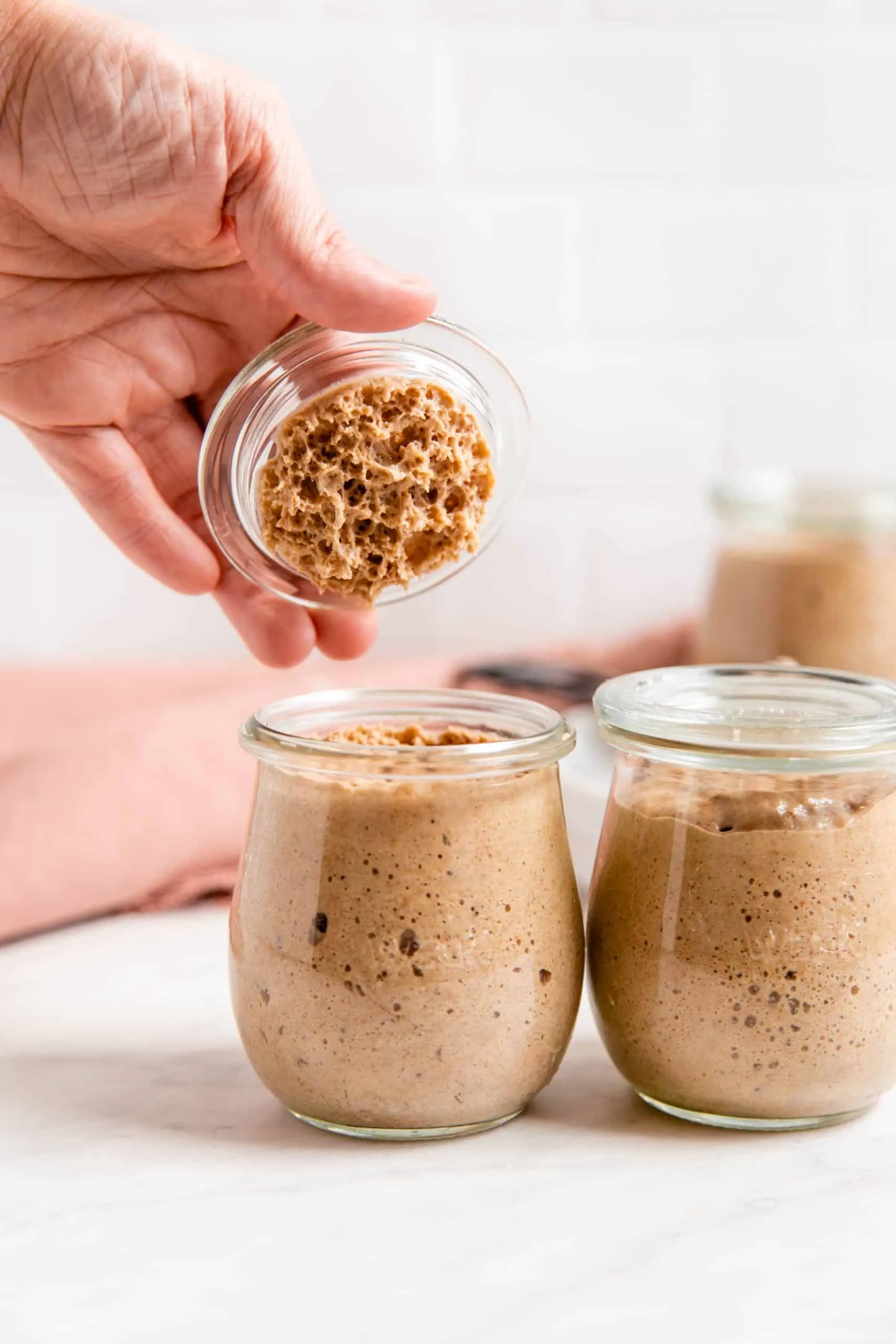Imagine transforming just two simple ingredients into a living, breathing culinary wonder that can elevate your baking from ordinary to extraordinary! A rye sourdough starter is not just a recipe—it's a magical fermentation journey that connects you to centuries-old baking traditions. With just flour and water, you'll create a vibrant, bubbling ecosystem of wild yeasts and bacteria that will become the secret weapon in your baking arsenal, promising bread with unparalleled flavor, texture, and complexity.
Prep Time: 5 mins
Cook Time: -
Total Time: 5 mins
Cuisine: American
Serves: 1 starter
Ingredients
- 100g rye flour
- 100g water
Instructions
- In a clean glass or ceramic container, combine the 100g of rye flour and 100g of room temperature water.
- Whisk the ingredients thoroughly until no dry flour remains and the mixture is completely smooth and free of lumps.
- Cover the container loosely with a clean kitchen towel or plastic wrap with a few small holes for air circulation.
- Place the starter in a warm spot in your kitchen, ideally between 70-80°F (21-27°C), away from direct sunlight and drafts.
- Let the mixture sit at room temperature for 24 hours without disturbing.
- After 24 hours, you may see some small bubbles forming, which indicates fermentation is beginning.
- Discard half of the mixture and add another 50g of rye flour and 50g of water, mixing well.
- Repeat the feeding process daily at the same time, discarding half and adding fresh flour and water.
- Continue this process for 5-7 days until the starter becomes bubbly, doubles in size, and has a pleasant, slightly sour aroma.
- Once active, maintain the starter by feeding it regularly and storing it in the refrigerator between uses.
Tips
- • Temperature is crucial: Keep your starter in a consistently warm environment between 70-80°F for optimal fermentation. • Use a clear glass container to easily track bubble formation and growth. • Always use clean utensils to prevent unwanted bacterial contamination. • Be patient and consistent with daily feedings—sourdough is a living culture that requires gentle, regular care. • Don't discard your discarded starter! Use it in pancakes, crackers, or other recipes to minimize waste. • A mature starter should smell pleasantly sour and have a consistent, bubbly appearance. • Consider using a kitchen scale for precise measurements to ensure starter success. • If your kitchen is cooler, fermentation might take slightly longer, so adjust your expectations accordingly.
Nutrition Facts
Calories: 364kcal
Carbohydrates: 76g
Protein: 12g
Fat: 2g
Saturated Fat: g
Cholesterol: 0mg


